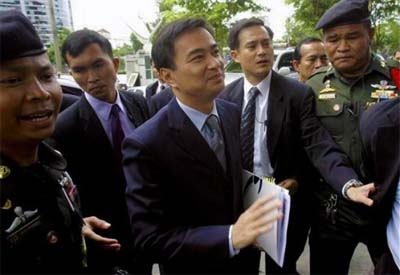This study contends that during the 1990s the Thai military was not depoliticized. It has been argued that a ‘re-politicization’ of the Thai military occurred with the 2001 election of the Thaksin Shinawatra government. Thaksin brought a large team of persons with senior military backgrounds to office. By placing responsibility for military re-politicization at the door of Thaksin, some people indirectly fault him for the 2006 coup—in which the armed forces once again assumed direct political power.
In 2008, the military’s successes in helping oust Thaksin’s elected nominee government from office, and then building an anti-Thaksin civilian government, have resurrected its clout. However, these events have triggered broad repercussions for Thailand’s entire process of democratisation. That process had seen the country follow a trajectory toward greater pluralism and political space since 1992. The 2006 coup obliterated much of the democratic progress. The election of December 2007 seemed to breathe new life into pluralism, but the new democratic roots have been proven to be shallow. Only last years Thailand again saw the military willing and able to involve itself in unconventional, indirect political intrusions—to the point of removing two Thaksin-aligned governments.
In late August 2009, new rumors emerged of a possible military coup against the government of Prime Minister Abhisit Vejjajiva. This gossip coincided with an attempt by Red-Shirt leaders to petition Thailand’s king to pardon Thaksin Shinawatra. It was a tense period during which violence might provide the necessary springboard for military intervention. There has been no coup, but such rumours underline the continuing popular perception of an extreme lack of civilian control over Thailand’s military. Discussion of these matters is important in a country where the army has proved that it will continue to exercise its role as a political arbiter.
This is an abstract of an article by Paul Chambers that appeared here on New Mandala.

